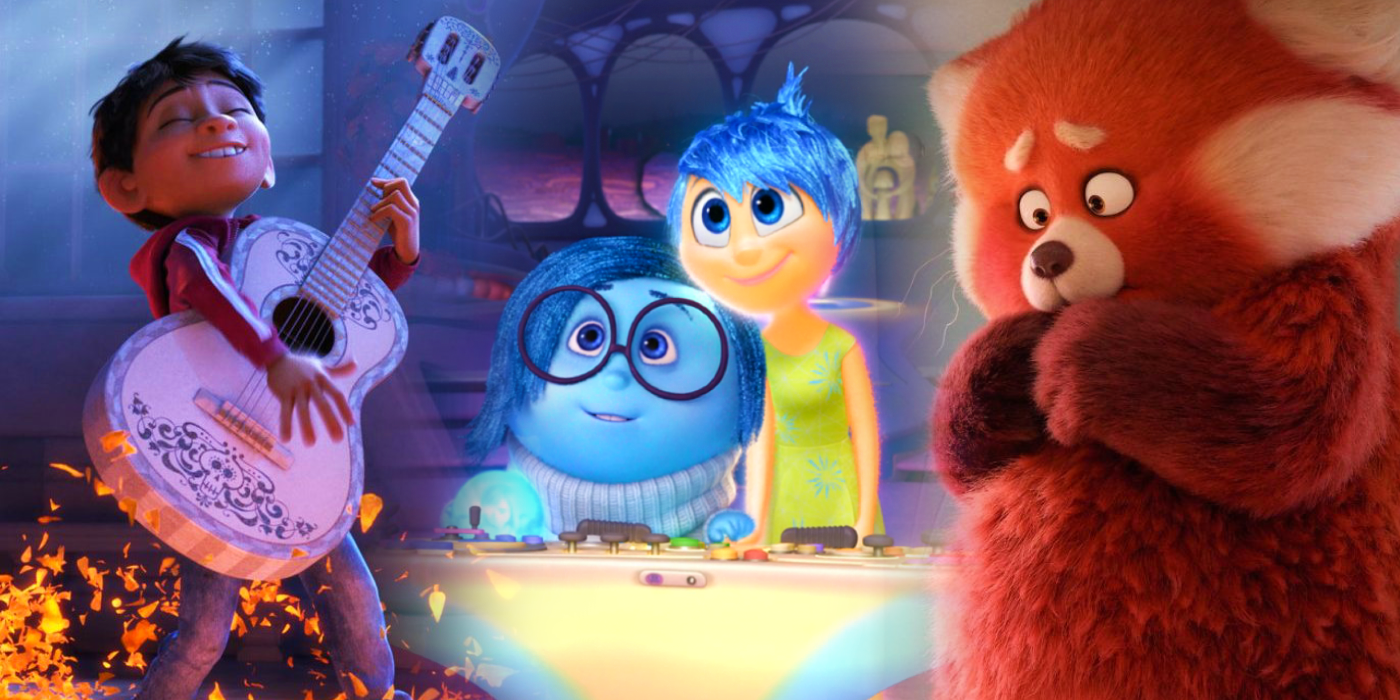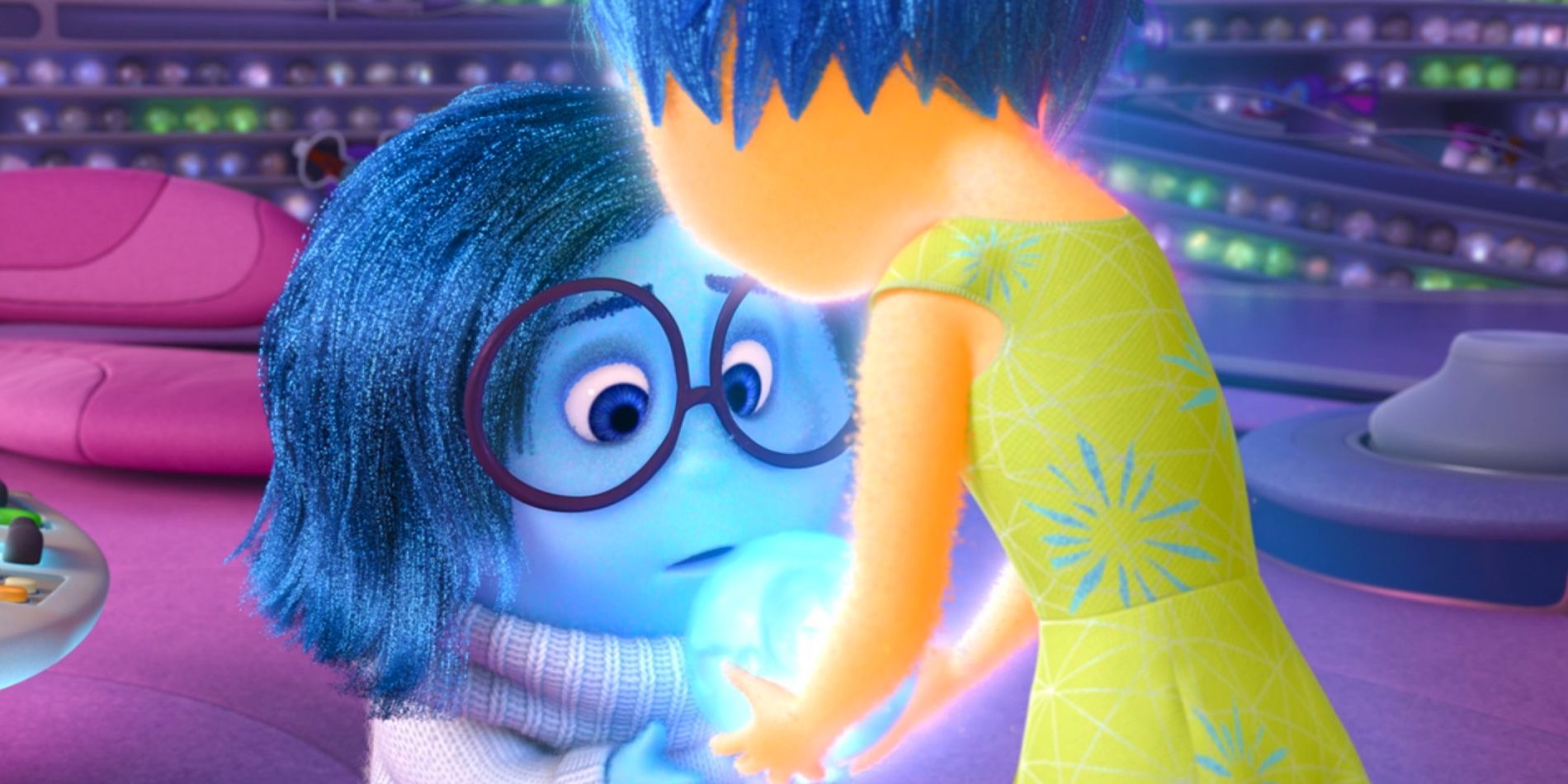
Inside Out has since been overshadowed by Pixar's subsequent successes, but it was this 2015 release that actually broke the animation studio out of a stale trend and changed what their movies could be. The majority of Inside Out takes place inside the mind of a young girl named Riley and makes characters out of her primary emotions — Joy, Sadness, Disgust, Fear, and Anger. The movie's production team consulted with neurologists and psychologists to best display how Riley's mind would work in order to achieve something completely new for the company.
Pixar's reputation as an animation studio is excellent, as it continually churns out well-crafted and enjoyable shorts and features, reigning in excellent Rotten Tomatoes scores. Although Pixar's movies are watched by audiences of all ages, the studio has primarily focused on content that children can understand and appreciate. Their premises have been fairly simple, often about the importance of friendship — as with Toy Story, Finding Nemo, Monsters, Inc., among others — because that's an easy topic for children to follow. Pixar could still achieve its signature emotional gut-punches with these simpler stories, but there was room for the studio to push its material further, especially after a run of rehashing their familiar ideas in multiple sequels.
Inside Out changed what Pixar movies could be by essentially crediting children with more emotional intelligence than was previously considered. The animated feature tackles the complex and intimidating subject of human emotions through the lens of a child, delving into her hobbies, dislikes, and even memories of her childhood imaginary friend, Bing Bong. The subject seemed hard to tackle in a way that would still be comprehended, and enjoyed, by children, but Pixar succeeded. More than this, the movie personifies difficult feelings in a way that could educate and help not only children, but adults as well.

Out of all the Pixar movies, Inside Out has been especially praised for its unique approach to children's animation. Its concept was outside of the box and created a story that not only entertains but can assist children in handling more complicated thoughts and feelings. Because of Inside Out, Pixar has only gotten braver in tackling more mature stories. Onward and Coco focus on the complicated nature of grief, Soul explores a higher plane of existence and looks at how life is given meaning, and Turning Red explores family trauma while also working as an analogy for menstruation.
Further, Inside Out is also void of a traditional villain, which set another new trend that is frequently seen in Pixar's newer animated features. While Sadness could be initially seen as the antagonist, she is not a villain, which works in a similar vein to Ming in Turning Red. As far as breaking from bad Pixar trends, before Inside Out, the studio had released three sequels in a short period of three years. Inside Out was followed by a few more sequels, but from 2020 to 2022 Pixar has released four original movies with similar notions of deeper subject matter, showing Inside Out's impact and popularity.
Inside Out's importance in the vast array of Pixar output cannot be understated. The movie branched out of not only Pixar traditions but children's animated films in general, and it changed what the studio's releases could be, perhaps even laying the way for Disney Animation projects like Encanto. By taking a risk on an idea more intricate than in previous works, Pixar opened up doors for new original ideas, thus stepping away from the sequel machine and pioneering creativity again.
Comments
Post a Comment